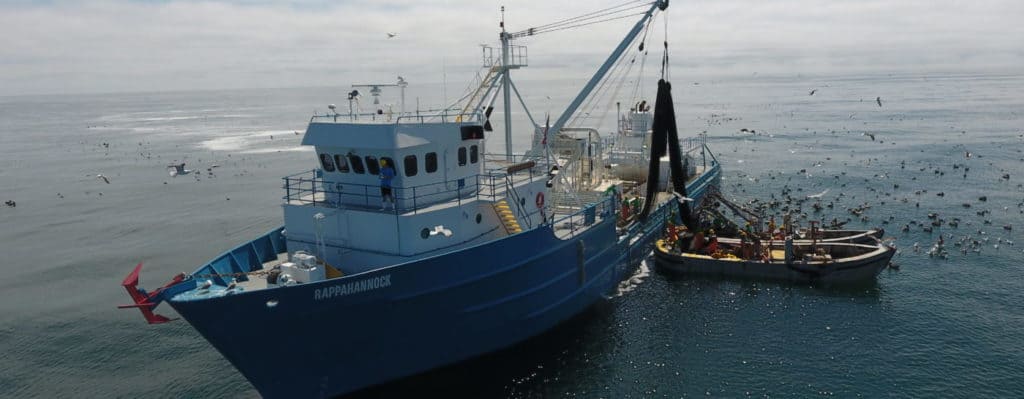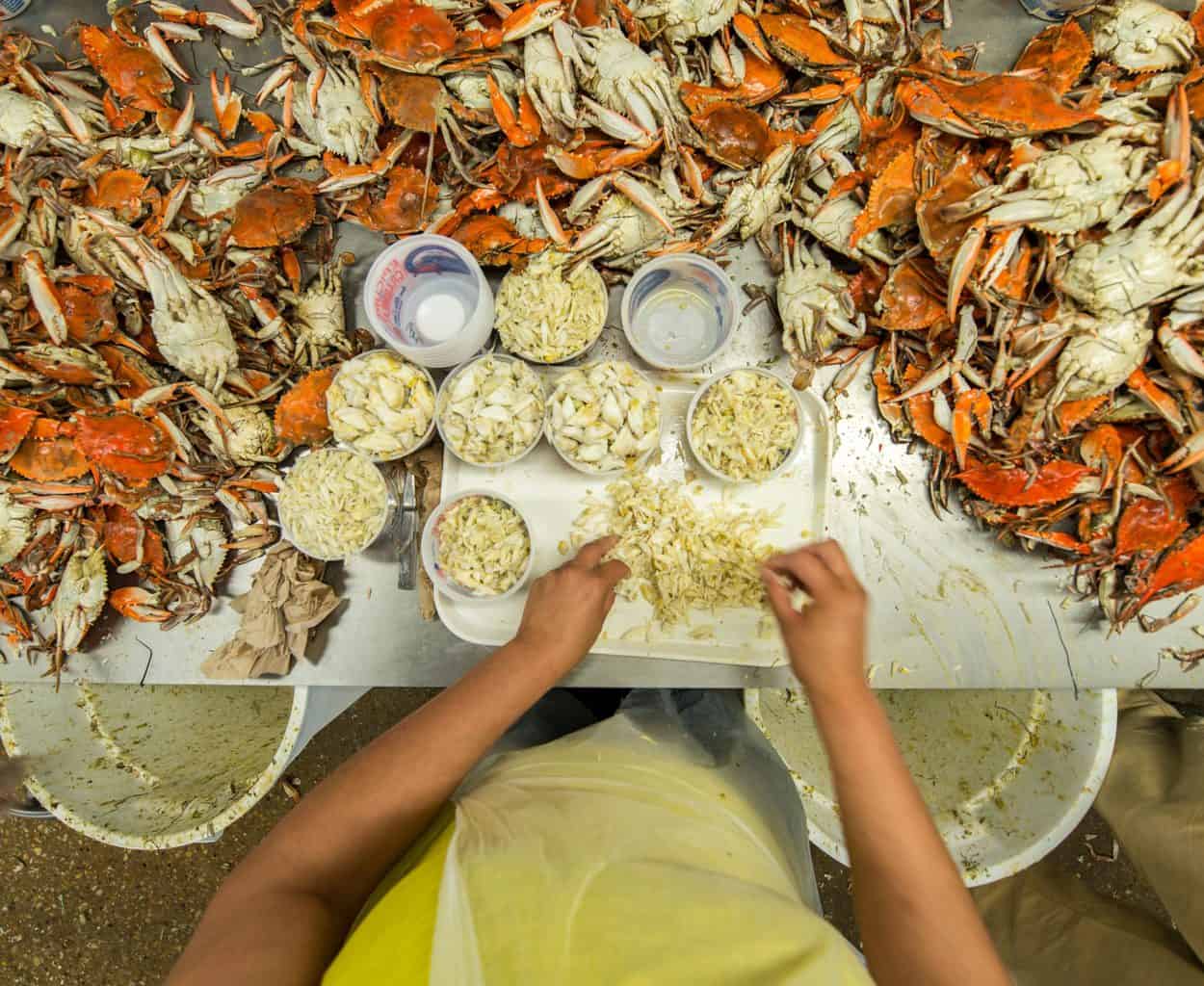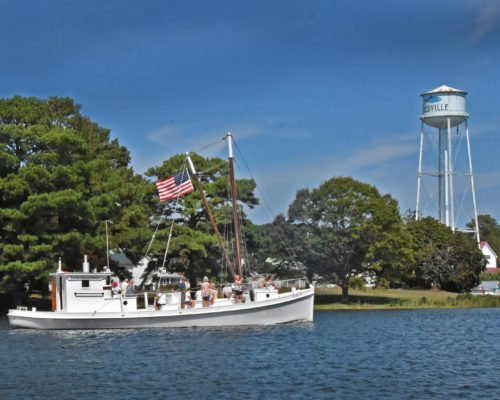The harvest quota is set for menhaden harvesting along the Atlantic coast the next two years, and it’s 10 percent lower than this year’s limit. The Atlantic States Marine Fisheries Commission (ASMFC) voted 13 to 5 to approve the limit.
The East Coast was watching this quota decision especially closely because it was the first to be set since ASMFC made a groundbreaking change to menhaden management. In August, fishery managers agreed to adopt Ecological Reference Points in their fishery deicsions. That means they now determine catch limits based on how species’ abundance impacts predators like crabs, rockfish and birds. For 2021 and 2022, that means a menhaden quota of 194,400 metric tons over the entire Atlantic coast.
“This lower harvest limit aims to leave enough menhaden in the water to help them fulfill their key role in the food chain both along the Atlantic Coast and in Chesapeake Bay,” says Chesapeake Bay Foundation Senior Regional Ecosystem Scientist Chris Moore.
Menhaden are an important forage fish, but they’re also a major industry in Reedville, Virginia, where Omega Protein catches and processes them by the tens of thousands of tons for fish meal and fish oil.
Just ahead of the vote, Omega Protein released a video emphasizing the company’s impact on the small Reedville community, highlighting the families that depend on menhaden fishing jobs.
In response to the reduced catch limit, Omega released a statement saying the company “recognizes the Atlantic States Marine Fisheries
Commission’s (ASMFC) decision to reduce the coastwide by 10%, while not preferred, is not an unreasonable step toward moving to ecological management of this species.”
Omega does argue that the burden of restoring predator populations (like the struggling striped bass Bay Bulletin is also reporting on this week) shouldn’t fall on the menhaden industry alone.
“Menhaden fishermen, bait users and fishery stakeholders throughout the Atlantic coast urged the ASMFC to maintain the current [catch limit]. These are the people whose livelihoods depend on a healthy menhaden population and who will now face economic hardships from the reduction,” says the Omega statement.
The quota approved this week doesn’t affect the “Bay cap” that limits the amount of menhaden that commercial boats can catch inside the Chesapeake Bay.
-Meg Walburn Viviano




